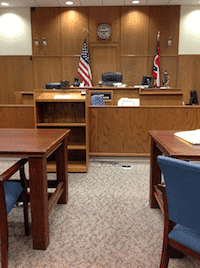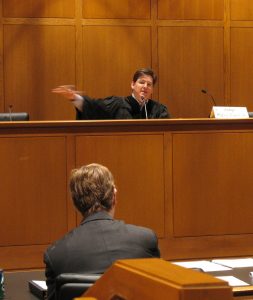Representing yourself in America’s courts is not a cakewalk. Lawyers see you coming a mile away and formulate a game plan just for you. Court clerks who might want to help you can’t. So, if you ask them a lot of questions, you’re a frustration. Judges struggle to be fair to you despite the biases they formed from the performance of other pro se litigants. Add to this, the procedures and protocols you have to follow, the cases and statutes you have to find, and motions and pleadings you must write. It can all be overwhelming.
Still, you survive the first stages of the case, a true victory. Most pro se litigants don’t survive the complaint and answer stages. You’ve filed a motion. All the research required to effectively argue the motion is behind you. You have cases ready to cite. You’ve written and practised your argument. You know your opponent’s strong and weak points. You feel you can persuade the judge to rule in your favor. In short, you’ve prepared well for your day in court. You even know the questions the judge might ask.
Except in court, you’re in the middle of your argument when the judge asks “Who wrote that up for you?” Despite all your preparation, you didn’t see that coming at all. Read the scenario below, and listen to the courtroom action where the judge asks, “Who wrote that up for you?”
The Scenario
Two pro se litigants — let’s call them Able and May — were sued for foreclosure by JPMorgan Chase Bank. (Names have been changed to protect privacy.) Able and May attempted to depose a bank vice president who had verified a mortgage assignment before it was actually created, but the bank didn’t like that idea. Chase amended their complaint to attach a completely different assignment, using another vice president’s verification to bury the first one. Able and May tried to depose the MERS officer who’d signed the new assignment (he also turned out to be a Chase employee), but Chase fought that as well.
Over the next year, Chase’s lawyers did everything they could to frustrate Able and May, including refusing to show up for scheduled depositions, cancelling hearings where live testimony would be given, and abusing emergency procedures to obtain ex parte protective orders without notice to Able and May. For the first year of the case, Able and May watched helplessly as judges signed everything Chase put in front of them. Then one day, with a compelling argument on the need to gather evidence, they persuaded a judge to set things right. Every pro se litigant dreams of disqualifying the other side’s lawyer, but in this case, Able and May found the tactic a powerful way of justifying the discovery they needed.
The Audio
After getting an order to subpoena the MERS officer who’d also worked for Chase, Able and May went to war to get the other witnesses. The judge couldn’t believe her ears.
The Results
Of course, the typical response to a compelling argument is nonsense. The bank’s lawyer tried to moot the discovery request by arguing that since his client had no dispute with the facts, there was no need for testimony about them. But then Able reminded the judge that Chase had actually disputed itself. The judge lifted the protective orders and allowed Able and May to subpoena all the witnesses for an evidentiary hearing. The judge…
- issued an out-of-state commission to subpoena a former bank employee (WIN);
- lifted protective orders for the bank’s attorney and vice president (WIN);
- ordered an evidentiary hearing on defendants’ motion to disqualify counsel (WIN);
- granted leave to subpoena the bank’s attorney and vice president for testimony at the evidentiary hearing (WIN).
Not bad for a pro se day in court. Share your pro se lessons or wins in the comments below.




If a motion to dismiss is a affirmation of the facts in a complaint, and the motion is denied, then the complainant entitled to summary judgement based on the evidence within the complaint, right or wrong????